Ovarian Cancer
How to submit an article:
- Registered users can submit any published journal article that has a unique DOI (Digital Object Identifier) name or link to Research Hub.
- For example, you can paste the full DOI link:
https://doi.org/10.1109/5.771073or just the DOI name:10.1109/5.771073into the field above and click submit. - The person who is first to submit a valid article to Research Hub will forever be credited for it, and every article submission earns you +6 Research Points.
Related Topics
Published research studies are articles that present the findings of original research that has undergone a peer-review process and has been made publicly available in scholarly journals, books or other media.
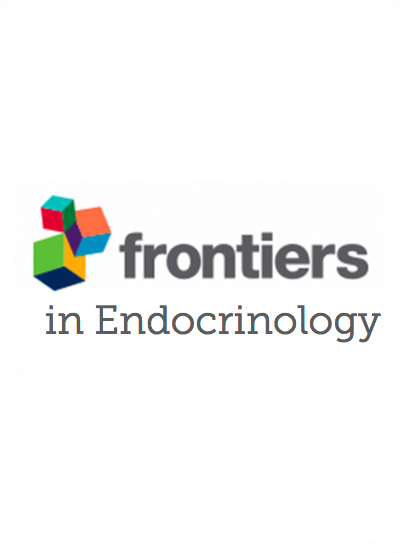
Modulatory effect of pomegranate peel extract on key regulators of ovarian cellular processes in vitro
2023 Nov 08 Frontiers in Endocrinology Kolesarova A, Baldovska S, Kohut L, Vasicek J, Ivanisova E, Arvay J, et al.
The study found that pomegranate peel extract had inhibitory effects on the metabolic activity of OVCAR-3 cells, increased CDKN1A levels, and influenced steroidogenesis in HGL5 cells, suggesting its potential as a (chemo)preventive agent for ovarian cancer.
Experimental Study Ovarian Cancer Pomegranate Peel
Coicis Semen for the treatment of malignant tumors of the female reproductive system: A review of traditional Chinese medicinal uses, phytochemistry, pharmacokinetics, and pharmacodynamics
2023 Feb 23 Frontiers in Pharmacology Pan X, Shen Q, Zhang C, Zhang X, Li Y, Chang Z, et al.
Coicis Semen is an important botanical drug for the clinical treatment of female reproductive system malignancies, and its efficacy has been confirmed in more than 74 TCM clinical trials. These studies have shown that the administration of prescriptions containing Coicis Semen resulted in good therapeutic outcomes in those with cervical cancer, ovarian cancer, endometrial cancer, and other malignant tumors of the female reproductive system by inhibiting the growth of tumors, enhancing immune function, and improving the quality of life.
Review Article Anticancer Endometrial Cancer Coix Seed Ovarian Cancer
Association of Dietary Carrot/Carotene Intakes With Colorectal Cancer Incidence and Mortality in the Prostate, Lung, Colorectal, and Ovarian Cancer Screening Trial
2022 Jun 17 Frontiers in Nutrition Jiang Z, Chen H, Li M, Wang W, Fan C, Long F
Cohort Study Carotene Colorectal Cancer CarrotModerate consumption of carrots is associated with a lower incidence of colorectal cancer, implying a potential cancer prevention effect in a certain dose-range.
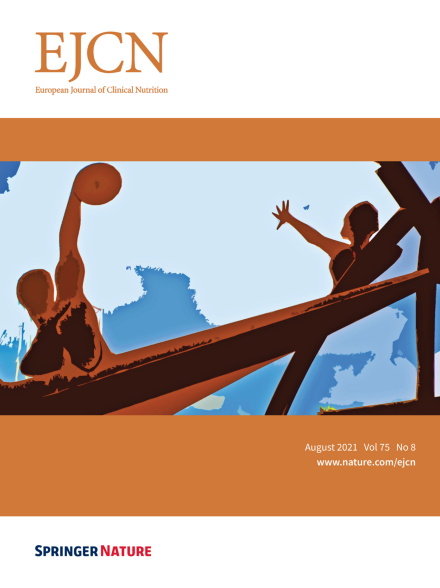
Green tea and cancer and cardiometabolic diseases: a review of the current epidemiological evidence
2020 Aug 20 European Journal of Clinical Nutrition Abe SK, Inoue M
Systematic Review Review Article Meta-Analysis Green Tea High Blood Pressure Cancer Cardiovascular Disease Lung Cancer Non-Hodgkins Lymphoma Ovarian Cancer Oral Cancer Stroke Endometrial CancerThe literature overall supports an inverse association between green tea and cardiovascular disease-related health outcomes, while the included meta-analyses generally suggested an inverse association between green tea and BMI-related and blood pressure outcomes.
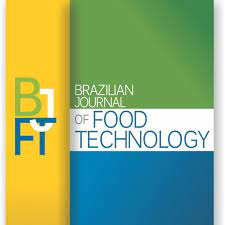
Impact of soy consumption on human health: integrative review
2020 Jan Brazilian Journal of Food Technology Nogueira-de-Almeida CA, Ferraz IS, Ued FV, Almeida ACF, Ciampo LAD
The integrative review on soy consumption and its effects on human health, based on 97 selected studies, provides insights into various aspects including its impact on protein quality, early exposure using soy formulas, and effects on conditions such as breast cancer, endometrial and ovarian cancer, prostate cancer, cardiovascular disease, glucose metabolism, type 2 diabetes, obesity, reproductive health, menopause, osteoporosis, microbiota, immunity, immunomodulation, thyroid function, attention-deficit hyperactivity disorder, and renal function.
Review Article SoybeanResearch insights are moderated by the Research Hub team and offer an at-a-glance overview of interesting research findings.

2022 Frontiers in Nutrition
Moderate consumption of carrots is associated with a lower incidence of colorectal cancer, implying a potential cancer prevention effect in a certain dose-range.
Cohort Study Carotene Carrot Colorectal Cancer
Association of Dietary Carrot/Carotene Intakes With Colorectal Cancer Incidence and Mortality in the Prostate, Lung, Colorectal, and Ovarian Cancer Screening Trial
Jiang Z, Chen H, Li M, Wang W, Fan C, Long F

2020 European Journal of Clinical Nutrition
The literature overall supports an inverse association between green tea and cardiovascular disease-related health outcomes, while the included meta-analyses generally suggested an inverse association between green tea and BMI-related and blood pressure outcomes.
Systematic Review Cancer Cardiovascular Disease Endometrial Cancer Green Tea High Blood Pressure
Green tea and cancer and cardiometabolic diseases: a review of the current epidemiological evidence
Abe SK, Inoue M
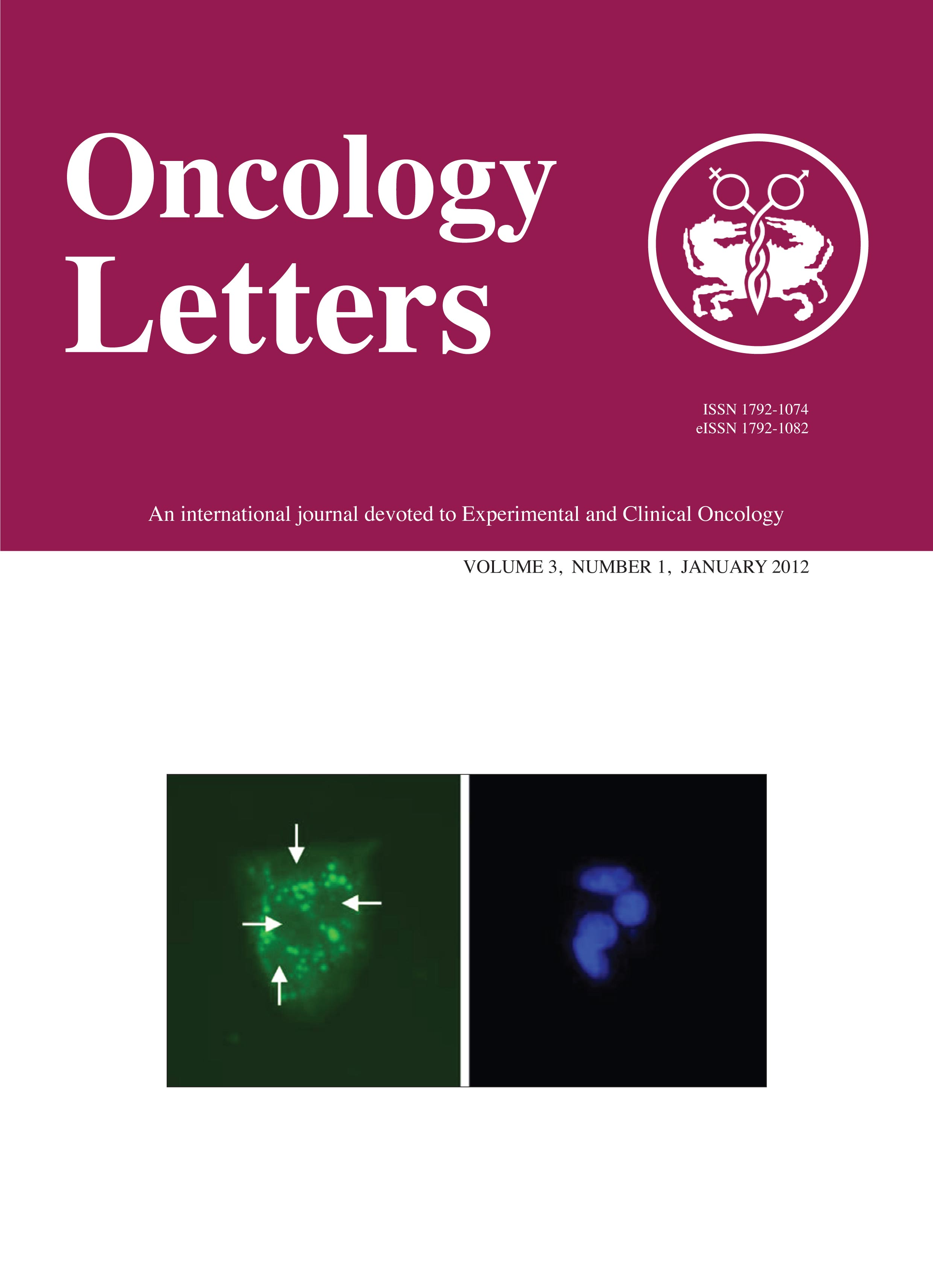
2017 Oncology Letters
Blueberries can reduce the proliferation of ovarian cancer cells by downregulating the levels of specific biomarkers, exhibiting potential for non-pharmaceutical therapy.
Animal Study Blueberry
Blueberries inhibit cyclooxygenase-1 and cyclooxygenase-2 activity in human epithelial ovarian cancer
Lin W, Li Z
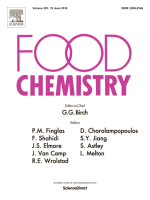
2012 Food Chemistry
Adzuki bean exhibited the strongest antiproliferative properties in a dose-dependent manner against all digestive system cancer cell lines, ovary cancer cell SK-OV-3 and breast cancer cell MCF-7 among all legumes tested.
Experimental Study Adzuki Bean Anticancer Antiproliferation Black Soybean Breast Cancer
Comparative study on antiproliferation properties and cellular antioxidant activities of commonly consumed food legumes against nine human cancer cell lines
Xu B, Chang SKC
Review Articles
Review articles summarise and critically evaluate the current state of research on a specific topic or field by synthesising multiple primary research studies.

Coicis Semen for the treatment of malignant tumors of the female reproductive system: A review of traditional Chinese medicinal uses, phytochemistry, pharmacokinetics, and pharmacodynamics
2023 Feb 23 Frontiers in Pharmacology Pan X, Shen Q, Zhang C, Zhang X, Li Y, Chang Z, et al.
Coicis Semen is an important botanical drug for the clinical treatment of female reproductive system malignancies, and its efficacy has been confirmed in more than 74 TCM clinical trials. These studies have shown that the administration of prescriptions containing Coicis Semen resulted in good therapeutic outcomes in those with cervical cancer, ovarian cancer, endometrial cancer, and other malignant tumors of the female reproductive system by inhibiting the growth of tumors, enhancing immune function, and improving the quality of life.
Review Article Anticancer Endometrial Cancer Coix Seed Ovarian Cancer
Green tea and cancer and cardiometabolic diseases: a review of the current epidemiological evidence
2020 Aug 20 European Journal of Clinical Nutrition Abe SK, Inoue M
Systematic Review Review Article Meta-Analysis Green Tea High Blood Pressure Cancer Cardiovascular Disease Lung Cancer Non-Hodgkins Lymphoma Ovarian Cancer Oral Cancer Stroke Endometrial CancerThe literature overall supports an inverse association between green tea and cardiovascular disease-related health outcomes, while the included meta-analyses generally suggested an inverse association between green tea and BMI-related and blood pressure outcomes.

Impact of soy consumption on human health: integrative review
2020 Jan Brazilian Journal of Food Technology Nogueira-de-Almeida CA, Ferraz IS, Ued FV, Almeida ACF, Ciampo LAD
The integrative review on soy consumption and its effects on human health, based on 97 selected studies, provides insights into various aspects including its impact on protein quality, early exposure using soy formulas, and effects on conditions such as breast cancer, endometrial and ovarian cancer, prostate cancer, cardiovascular disease, glucose metabolism, type 2 diabetes, obesity, reproductive health, menopause, osteoporosis, microbiota, immunity, immunomodulation, thyroid function, attention-deficit hyperactivity disorder, and renal function.
Review Article SoybeanClinical Trials
Clinical trials are research studies that involve people and are conducted to evaluate the safety and efficacy of new treatments or interventions, such as drugs, medical devices, or behavioural therapies.
Study Protocols
Published study protocols are detailed plans that outline the objectives, methodology, statistical analyses, and organisation of a research study that have been made publicly available for others to review and use as a reference.
Presentation Slides

Cohort Study
Moderate consumption of carrots is associated with a lower incidence of colorectal cancer, implying a potential cancer prevention effect in a certain dose-range.
Jiang Z, Chen H, Li M, Wang W, Fan C, Long F

Systematic Review
The literature overall supports an inverse association between green tea and cardiovascular disease-related health outcomes, while the included meta-analyses generally suggested an inverse association between green tea and BMI-related and blood pressure outcomes.
Abe SK, Inoue M

Animal Study
Blueberries can reduce the proliferation of ovarian cancer cells by downregulating the levels of specific biomarkers, exhibiting potential for non-pharmaceutical therapy.
Lin W, Li Z

Experimental Study
Adzuki bean exhibited the strongest antiproliferative properties in a dose-dependent manner against all digestive system cancer cell lines, ovary cancer cell SK-OV-3 and breast cancer cell MCF-7 among all legumes tested.
Xu B, Chang SKC
Executive Summary
Write an executive summary in the form of a blog article on the topic of "Research into Chinese medicine treatment for Ovarian Cancer" summarising the research below and using language that can be easily understood by patients and avoiding medical jargon using a professional and caring tone of voice.
Write an executive summary in the form of a blog article on the topic of "Researched Chinese medicine treatments for Ovarian Cancer" summarising the research below in an objective and easy to understand way, and using language that can be easily understood by patients. Group the article into Chinese medicine treatments first, followed by nutrition and other treatments. Avoid using medical jargon and use a professional and caring tone of voice.
Write me a concise but easy to understand executive summary on the topic of "Chinese medicine treatments for Ovarian Cancer" based on the following research that I will give you. Your summary should be 2 paragraphs long in Australian English spelling and include references to the studies.
A Cohort Study published in 2022 in the journal Frontiers in Nutrition found that Moderate consumption of carrots is associated with a lower incidence of colorectal cancer, implying a potential cancer prevention effect in a certain dose-range. The research analysed the dietary intake of carrots/carotene and their relationship to colorectal cancer incidence and mortality in a cohort from the Prostate, Lung, Colorectal, and Ovarian Cancer Screening. The study involved 101,680 participants who joined the cohort between November 1993 and July 2001. The hazard ratios were estimated through multivariable Cox regression analyses. Additionally, subgroup analyses and interaction tests were conducted to check for potential effect modifiers. A generalised additive model was used to examine the non-linear trend of the exposure to cancer-related outcomes. In total, the study documented 1,100 colorectal cancer cases and 443 cancer-related deaths. It was discovered that dietary carrot intake was linked to a 21% lower risk of colorectal cancer incidence for those in the 4th quintile group compared to the lowest quintile group. Increase in carrot intakes, on a per standard deviation, did not reveal any statistically significant associations with the disease incidence. There were no significant associations found between dietary α-, and β-carotene intake and colorectal cancer incidence, nor were there any associations between carrot/carotene intakes and cancer mortality. They also observed no non-linear dose-response relationships between dietary carrot, α-, and β-carotene intake and colorectal cancer incidence and mortality. Notably, the study found that smoking status could potentially modify the association of dietary carrot intake with incidence of colorectal cancer, but not mortality.
A Systematic Review published in 2020 in the journal European Journal of Clinical Nutrition found that The literature overall supports an inverse association between green tea and cardiovascular disease-related health outcomes, while the included meta-analyses generally suggested an inverse association between green tea and BMI-related and blood pressure outcomes. The evidence on green tea consumption and health outcomes presented in this review suggests green tea may be favorable for cardiovascular disease, particularly stroke, and certain cancers such as endometrial, esophageal, lung, non-Hodgkins lymphoma, oral, and ovarian cancer. More evidence is needed to assess the impact of green tea on breast, gastric, and liver cancer risk. Additional studies could also help clarify the suggested null association with certain cancer sites: colorectal, pancreatic, and prostate cancer. Possible minor adverse events on health from green tea consumption were reported in one study, however these must be interpreted cautiously within the study context and possible finer dose-response implications. The findings for green tea and diabetes risk were inconclusive. For BMI the current evidence suggests a possible weak association, while the evidence is stronger supporting a decrease in blood pressure from green tea. More studies investigating a possible association between green tea consumption and other health outcomes such as cognition, injuries, respiratory disease would be informative to more completely assess the impact of green tea on human health. In conclusion, our review suggests green tea may have health benefits especially for cardiovascular disease and certain cancer sites.
A Animal Study published in 2017 in the journal Oncology Letters found that Blueberries can reduce the proliferation of ovarian cancer cells by downregulating the levels of specific biomarkers, exhibiting potential for non-pharmaceutical therapy. The research method involved the overexpression or silencing of cyclooxygenase (COX)-1 and COX-2, known biomarkers of ovarian cancer, in SKOV3 ovarian cancer cells. The effect of blueberries on the cells' viability was then measured utilizing a colorimetric assay known as an MTT test. Additionally, a mouse model for ovarian cancer was established to further this investigation. The results revealed that the administration of blueberries led to the inhibition of ovarian cancer cell proliferation, primarily through decreased levels of COX-1 and COX-2. Furthermore, regular consumption of blueberries greatly reduced the tumor size in the ovarian cancer mouse model compared to the control without blueberry treatment. This indicates that blueberries might have considerable potential as a natural therapy for ovarian cancer due to fewer side effects and high effectiveness.
A Experimental Study published in 2012 in the journal Food Chemistry found that Adzuki bean exhibited the strongest antiproliferative properties in a dose-dependent manner against all digestive system cancer cell lines, ovary cancer cell SK-OV-3 and breast cancer cell MCF-7 among all legumes tested. This research involved comparing the health-promoting effects of various food legumes. The Cellular Antioxidant Activity (CAA) was assessed using a fluorescence microplate reader and in vitro animal cell cultivation. The antiproliferative properties against cancer cells were evaluated through the MTT method in an in vitro cell culture system. Additionally, the study quantified phytochemicals (total phenolic, procyanidin, saponin, and phytic acid) and chemical antioxidant activities (DPPH free radical scavenging activity, oxygen radical absorbing capacity, peroxyl radical scavenging capacity). The results indicated significant variations in phytochemical and antioxidant activities among different legumes. Notably, adzuki bean demonstrated the strongest dose-dependent antiproliferative effects against various cancer cell lines, including those from the digestive system, ovary, and breast. Meanwhile, black soybean showed the highest levels of saponin, phytic acid, and the strongest cellular antioxidant activities. These findings suggest that food legumes, particularly adzuki beans and black soybeans, are promising as natural antioxidants for health promotion and cancer prevention.
Moderation Tools
Topic
Sign In
Users not signed in are limited to viewing the 5 most recent items of content.